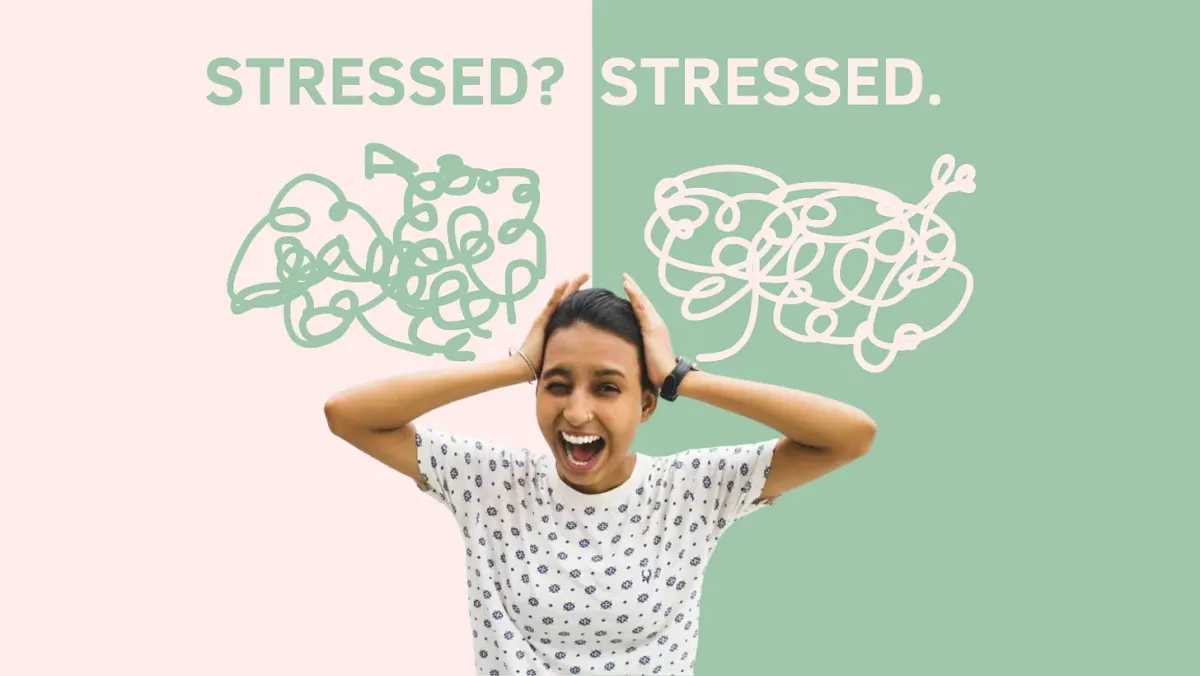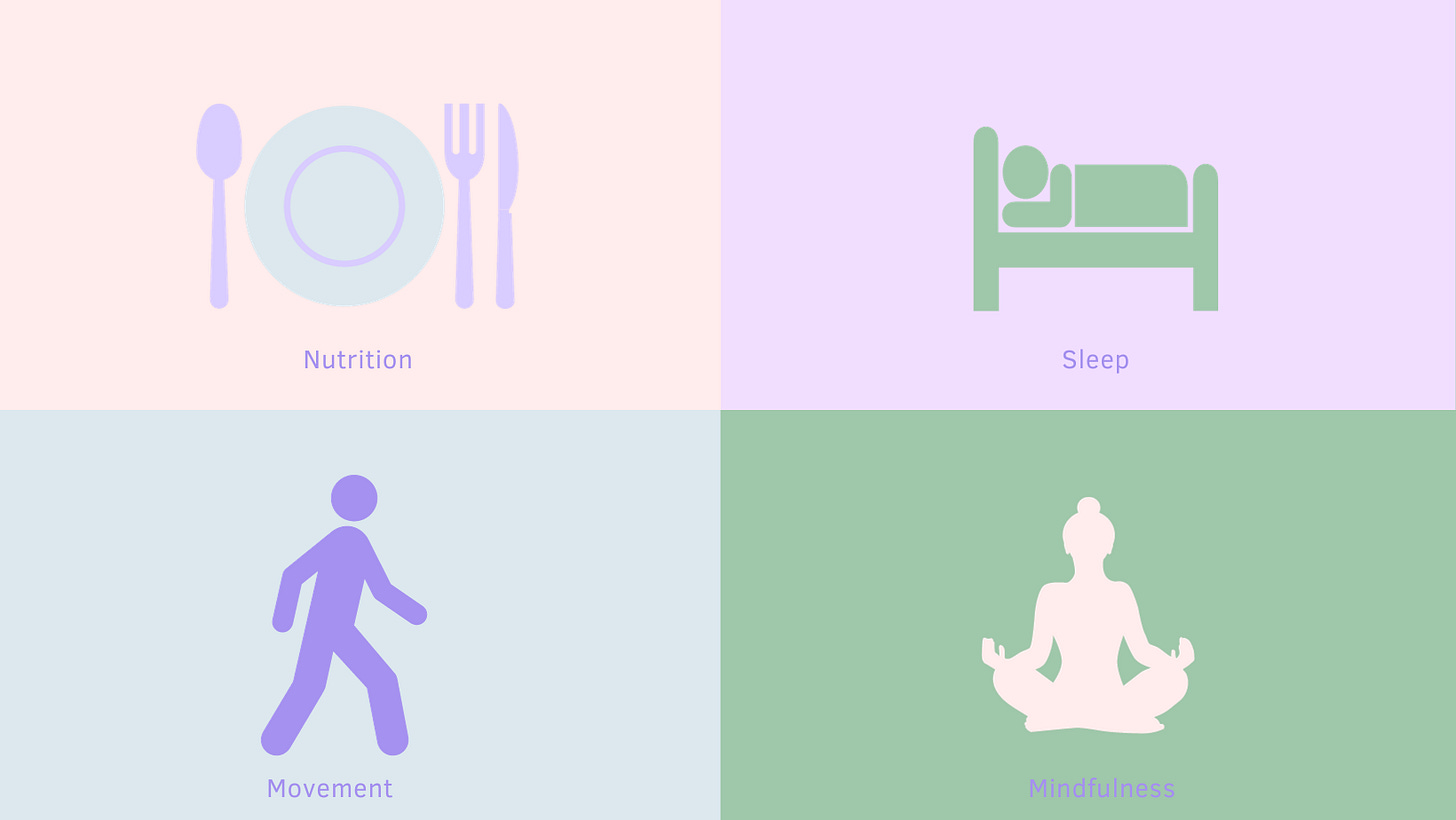Why Are Women More Stressed Than Men?

My husband and I had a conversation over breakfast. Is being stressed a bad thing?
As we head into the holiday season, it can sometimes seem like “stress” is a synonym for “life.”
Whether it’s your boss piling on yet another deadline before the end of the year, finding the right gifts for Christmas, or your family not accepting that you’d like to spend Christmas with your partner. It’s all too easy to shift from chilled out to stressed out — that overwhelmed, slightly sweaty, breathless feeling that makes it hard to think and function effectively, and we wish for January to arrive.
But let’s return to the question:
Is stress really that bad?
While stress has many downsides, the dose and duration of stress make the poison. In other words, not all stress is bad.
We feel stressed when real or imagined pressures (stressors) exceed our perceived ability to cope. What may stress you and your body may be a stressor for someone else.
When we perceive something as a threat (the stressor), such as not finishing a task before the holidays, it triggers a physiological response in our bodies, resulting in the release of hormones. This results in higher blood glucose levels dampens the immune response and alters appetite and mood.
From an evolutionary perspective, the stress response is nature’s fundamental survival mechanism. It also leads to better performance, but only up to a certain point. If we surpass this tipping point and the stress levels become too high, performance is impaired.
While most people can handle the day-to-day stresses of life, how one copes and responds to stress matters. Research shows that it’s not only a difference between you and me, but more general: Men and women deal with stress differently. (1)
The Gender Difference
It is not entirely clear why women experience stress more than men, given that both release the hormone cortisol, but theories suggest that women may differ in their sensitivity to their hormones.
Instead of blaming the hormones for a woman’s stress responses, we should have a more nuanced approach to the cause of their emotions, such as looking at their relationships and physical health.
Also, let’s not forget that, in general women find it easier to talk about feelings and have stronger social networks.
This, in turn, means that when asked, women are more likely to share how they feel.
Besides this openness about being stressed, feeling stressed may also be related to the biological life experiences that women undergo, such as pregnancy, nursing, and child care. Unfortunately, when the perceived stress is high, the brain prioritizes survival over non-essentials such as reproduction, adding more stress to a woman’s life when trying to conceive.
Lastly, women are more likely to be informal caregivers and more likely to put the needs of others first. (2) Stress among women is frequently related to pressure on them to fill many different roles, massively influencing their capacity to cope with stressors.
While these are all excellent explanations of why women have a more challenging time dealing with stress, it all comes down to a woman’s self-care and the awareness of her stressors as a first step.
What Can You Do to Help Yourself?
Many lifestyle factors have a significant impact on your mood and thus, your ability to cope with stress.

Nutrition
Unfortunately, it’s not an easy “eat this, not that” when it comes to food and mood. Stress and nutrition are two-way streets: Nutrition can affect stress just as stress can affect nutrition, and nutrition can affect stress. During times of stress, we tend to lower our intake of whole foods, fruits, and vegetables. It’s not surprising that the diet that seems to come out on top is the Mediterranean diet. It’s rich in colorful fruit and veggies, nuts and seeds, whole grains, healthy fats, and lower processed food intake. It also emphasizes social time (cooking together) and physical activity. It’s not only what we eat, but also how we eat.
Tests, with a continuous glucose monitor, also show that eating in a pleasant atmosphere, with friends or family results in a lower blood glucose response than the same meal, eaten alone. (Glucose is an excellent marker of stress levels. )
Movement
While exercise equally benefits men and women when it comes to stress management, women are typically less active than men and, therefore, benefit more from it. Regular physical activity is not only associated with better stress resilience, but it also improves sleep, quality of life, and self-esteem (which also contributes to stress).
Sleep
Stress can lead to disrupted sleep, including difficulty falling asleep, staying asleep, and waking early, so understanding that prioritizing your sleep hygiene and finding what works for you will help you cope with stress.
Mindfulness
Mindfulness-based therapies and stress-reduction programs may be perceived as a “woo-woo,” but rest assured that there are many ways to practice mindfulness. At the basic level, mindfulness is paying attention to the present moment and recognizing your sensations. This helps you discover what works for you to use daily.
It’s In Your Hands
I want to end this newsletter by reminding you that stress is part of life, but how you deal with it is up to you. It’s neither just a time of the year nor a normal part of being a woman.
Multiple factors influence your way of experiencing and dealing with stress, and taking your life into your own hands can help protect against the negative consequences of stress and improve it. Understanding what stresses you can also be incredibly empowering and ultimately make you feel stronger.
